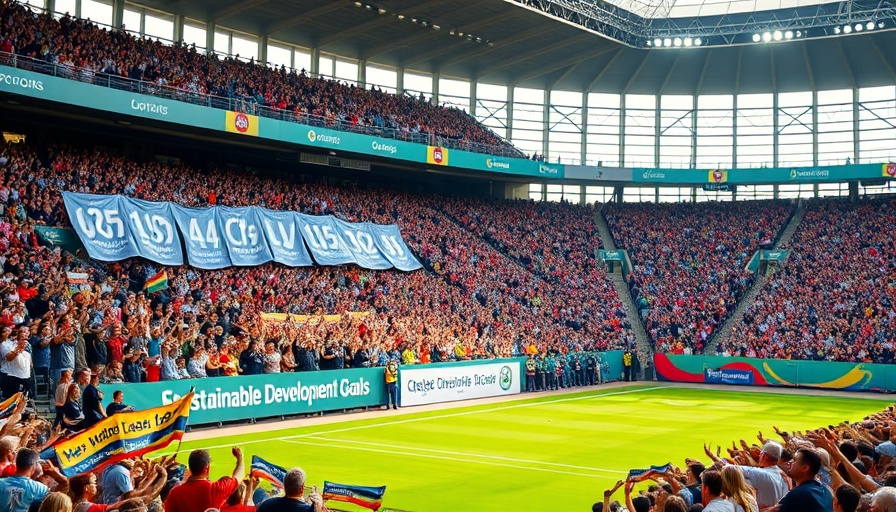
The Impact of Football on Sustainable Development in Africa
In an era where global collaboration is pivotal to addressing climate change and social inequalities, the sport of football has emerged as an influential vehicle driving positive change. Notably, at the World Expo 2025 held in Osaka, Japan, this power was exemplified as Gamba Osaka, a prominent Japanese football club, declared its commitment to the United Nations’ Football for the Goals initiative. This step underscores a growing recognition of the critical role sports can play in promoting the Sustainable Development Goals (SDGs).
A Global Perspective: Football as a Transformative Force
This initiative aims to engage the football community worldwide to inspire fans and promote sustainability. As Gamba Osaka illustrates, clubs can leverage their massive followings for advocacy and education, addressing urgent issues like climate action and poverty alleviation. In Africa, this resonates deeply as nations grapple with socio-economic challenges exacerbated by environmental crises. The intersection of football and sustainable development provides not only a platform for advocacy but also pathbreaking opportunities for community engagement and policy discourse.
Empowering Communities: Learning from Local Clubs
Let’s explore the ripple effects this initiative could have on African football clubs. By adopting similar models, local teams could serve as community hubs for raising awareness on SDGs among fans, promoting environmentally sustainable behavior while addressing local health and social issues. Clubs in Africa, harnessing the unifying power of football, could become instrumental in zoning in on critical themes from gender equality to economic resilience.
Future Opportunities for African Football
Looking to the future, there's a substantial opportunity for African clubs to align with global movements such as the Football for the Goals. Such alignment could lead to increased investment in local teams, not just financially but also in terms of bringing in global partnerships that might support infrastructural and developmental initiatives. Moreover, this could enhance Africa's presence on the global stage, crucially impacting trade relations, foreign investment, and global sports diplomacy.
Concluding Thoughts: The Call for Action
The intersection of football and sustainability is not merely a trend; it represents a profound commitment to fostering a healthier and more equitable world. As African nations consider their strategies within the global dialogue, the time is ripe for football clubs to assume leadership roles in advocating for sustainable development. We urge stakeholders, from policymakers to business leaders, to integrate sports into their strategic frameworks, fostering alliances that can drive economic growth while addressing pressing societal challenges.
 Add Row
Add Row  Add
Add 


 Add Row
Add Row  Add
Add 

Write A Comment